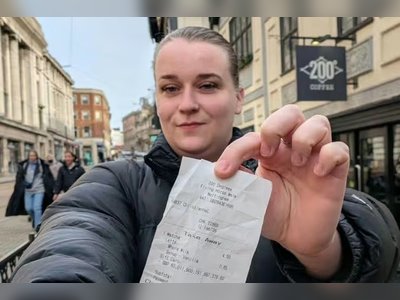Pandemic Debt Topples Dutch Retail Giant Blokker, Says Trustee
COVID-19 Debt Accumulation Identified as the Chief Cause of Bankruptcy; American Financier Aids in Potential Revival
In a significant development indicative of the pandemic's far-reaching economic consequences, the Dutch retail heavyweight Blokker has succumbed to bankruptcy, with the trustee pointing to COVID-19-induced tax debts as the primary culprit.
According to the trustee’s comprehensive report, the burgeoning liabilities owed to the Belastingdienst, the Dutch tax authority, spiraled uncontrollably during the COVID-19 crisis, ultimately driving the company into insolvency.
Blokker, a stalwart in the Dutch retail sector known for its household goods and consumer electronics, has been a fixture in the Netherlands for over a century.
However, the company’s financial health deteriorated as pandemic measures significantly hampered consumer foot traffic, accelerating its fiscal demise.
The closure impacts all of Blokker’s outlets, with operations set to cease by the end of the year.
This decision closes a chapter for one of the nation’s most recognized brands, provoking concerns about the wider implications for the retail industry in a largely digital and post-pandemic economic landscape.
Yet, there is a potential lifeline in sight.
An American financier has expressed interest in driving a reboot of the company, indicating a possibility of restructuring and revival.
This offers a glimmer of hope not just for preserving a beloved brand, but also for safeguarding jobs in a sector reeling from the pandemic’s repercussions.
This bankruptcy saga serves as a stark reminder of the persistent challenges facing businesses worldwide in the wake of COVID-19.
As governments and companies continue to navigate post-pandemic recovery, the Blokker case highlights the urgent need for innovative adaptations to new consumer behaviors and fiscal realities.
With the rampant spread of e-commerce and shifting consumer preferences, Blokker’s plight underscores the necessity for traditional retail businesses to evolve.
Industry analysts suggest that companies must adopt more flexible business models and enhanced digital platforms to survive in this transformed commercial environment.
The story of Blokker’s downfall stands as both a cautionary tale and a narrative filled with possibility—a reflection of the tumultuous but dynamic nature of today’s global economy.
According to the trustee’s comprehensive report, the burgeoning liabilities owed to the Belastingdienst, the Dutch tax authority, spiraled uncontrollably during the COVID-19 crisis, ultimately driving the company into insolvency.
Blokker, a stalwart in the Dutch retail sector known for its household goods and consumer electronics, has been a fixture in the Netherlands for over a century.
However, the company’s financial health deteriorated as pandemic measures significantly hampered consumer foot traffic, accelerating its fiscal demise.
The closure impacts all of Blokker’s outlets, with operations set to cease by the end of the year.
This decision closes a chapter for one of the nation’s most recognized brands, provoking concerns about the wider implications for the retail industry in a largely digital and post-pandemic economic landscape.
Yet, there is a potential lifeline in sight.
An American financier has expressed interest in driving a reboot of the company, indicating a possibility of restructuring and revival.
This offers a glimmer of hope not just for preserving a beloved brand, but also for safeguarding jobs in a sector reeling from the pandemic’s repercussions.
This bankruptcy saga serves as a stark reminder of the persistent challenges facing businesses worldwide in the wake of COVID-19.
As governments and companies continue to navigate post-pandemic recovery, the Blokker case highlights the urgent need for innovative adaptations to new consumer behaviors and fiscal realities.
With the rampant spread of e-commerce and shifting consumer preferences, Blokker’s plight underscores the necessity for traditional retail businesses to evolve.
Industry analysts suggest that companies must adopt more flexible business models and enhanced digital platforms to survive in this transformed commercial environment.
The story of Blokker’s downfall stands as both a cautionary tale and a narrative filled with possibility—a reflection of the tumultuous but dynamic nature of today’s global economy.











